Food, water and hygiene in Asia
Backpacking Health
"Backpacking Health" was last updated on April 25, 2012
The variety of food in Asia is so vast, delicious and new! You often don't know where to begin.
But when it comes to travel health, I'm afraid you have to be extra careful when picking food. The way they prepare food in Asia is not always good for your stomach.
On top of that, some restaurants use tap water to wash ingredients.
Like in India: the water is mostly contaminated with sewage, and the country has gone through a water crisis (although it has improved).
So, by watching what you eat and drink you can prevent yourself from catching cholera, typhoid, hepatitis etc. You usually get these diseases by eating or drinking contaminated food or water.
Have in mind that this article is strictly based on my experiences, and what I've read and heard. It won't guarantee that you won't catch food poisoning etc.
Food
Backpacking Health
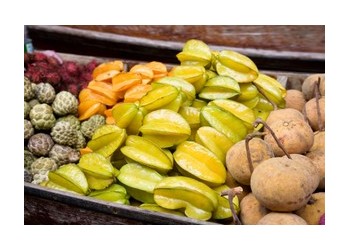
It is said that travelers should be careful eating meat and vegetables in Asia, because the meat is not always prepared the right way, or the vegetables might be washed in tap water.
Even if this is true, not all restaurants in Asia are unsafe. The important thing is that you're aware and practice your hygiene routines and don't forget them just because you're not at home.
If you get sick is difficult to answer because of your genes, immune system, what and where you eat.
If you have the tendency to get diarrhoea in your home country, this might be an indication that your stomach in general is sensitive and that you should be more careful with what you eat in Asia.
And here are some other easy tips:
- NEVER eat (half) raw meat or sea food! Check the meat before you start filling your mouth with it. The chicken can look good on the outside, but doesn't always on the inside.
- Don't eat meals that have been reheated, like buffet food. Bacteria love reheated food!
- You should pay extra attention when picking out a restaurant or a food stall. When choosing, see if there are other people sitting there. If there's actually people eating there, the food is likely safe.

An empty restaurant in Thailand
(this pic is only an example of an empty restaurant, and doesn't
reflect that the restaurant serves bad food)
- But on the other hand, an empty restaurant doesn't necessarily serve bad food. It can be just bad service or a new-opened restaurant. It's not easy to know. If you have a bad feeling about a place, follow your gut!
- After you've ordered and receive a dish, check if the food smells or looks strange. Like, old rice or vegetables have a distinguish gassy smell. If you're not a rice-expert, I can tell you that white rice shouldn't be yellow or slimy (like spit-slimy).
- At food stalls, you'll usually see the staff prepare your meal out in the open. That's why I personally like food stalls because I can "check" how they prepare it. There's also a high turnover at food stalls - it's not only travelers who eat there, but also locals.

Food stall in Bangkok
- The time it took from when you ordered, till the meal is on your table can give you some hints on how they've prepared it. Meals that have long preparation time (meat- or Western dishes), shouldn't appear on your table after, say, 5 minutes.
- If you've ordered a meat dish, check if the meat is cooked or fried properly before you eat it. Chicken and meat in general shouldn't be pink or bloody.
- Even if you eat at an expensive restaurant, don't take the food or drinks for granted. Even these kinds of restaurants can serve bad food.
- And remember; there's a fine line between caution and paranoia.
Just because a couple of travelers have broadcasted that you shouldn't eat meat or whatever, it doesn't mean that the meat in Asia is totally unsafe.
Getting too paranoid can disturb your food experience and you'll miss out on great food!
Personally, I've eaten mutton, chicken and fish in India and didn't get sick. In Thailand, Laos and Cambodia I've eaten chicken and pork without getting sick.
I got sick once when I arrived in Thailand after India, but don't know what the source was. It's all about where you decide to eat. Check the place out first and you can read reviews of restaurants on Tripadvisor.
Water and Drinks in Asia

Backpacking health
- ALWAYS drink and use bottled water, even if you're just cleaning your teeth!
Before purchasing one, check if it has been tampered with. The seal should be intact.
I can tell you that poor locals collect empty bottles in the streets. According to what I've heard, they refill the bottle with tap water and sell it.
But don't worry, you can easily see if these bottles have been tampered with. That's why checking the seal is important.

- If you want water or juice served with ice, always ask the staff where the ice comes from. They should make the ice from bottled water. Or... you can just say that you don't want ice at all!
- When it comes to tea or coffee, you should be fine. That's because boiling water usually kills bacteria.
- When it comes to buying alcohol, that's usually not dangerous. Most of the time they serve beers in bottles. If it goes bad, the blame should be on the factory, not the staff!
- If you're heading off-the-beaten-track, there aren't always bottled water to be found. I suggest you use water purifier tablets. These tablets sterilize water and are light to carry. You can also use water purifier at restaurants, if you suspect the water you've been served, comes from tap water. But you should shop around for prices and check out the quality, before stocking up.
Hygiene
Backpacking Health
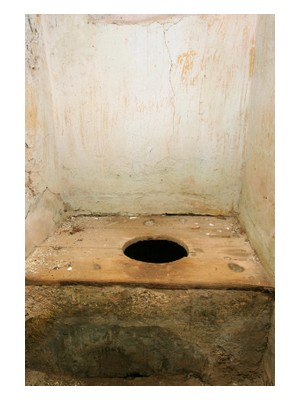
- The obvious part: Wash your hands or use antiseptic wipes/liquid after you've been to the toilet, before eating etc.
Carry your own antiseptic wipes all the time! You'll need it because the lack of soap occurs a lot in Asia.
- When using public toilets: There are usually squat toilets in rural areas of India and some places in Thailand, Laos, Malaysia and Cambodia (even at the airport in Malaysia!).
It can feel awkward to spread and balance your legs, and drop in a stinky hole. But in reality, this is cleaner than wiping your ass with toilet paper. There's usually a bucket with water next to you, so you can wash yourself.
If there aren't any buckets or toilet paper around, you should use your own toilet paper by carrying one the whole time.
Every backpacker I met carried a toilet paper or tissues in their handbag because they knew there weren't always toilet paper around.
Something to think about...
Have you experienced that when you've returned home from a backpacking trip, you experience diarrhea as well?
I have talked to other veteran travelers and they seem to have experienced this. It seems strange to me because we should be used to the food bacteria in our own home country, a place where we were born and raised!
We think it has a connection with the type of bacteria your stomach is used to, at that time.
So, I don't think you're doomed to have diarrhea the rest of your trip, as long you use common sense. But hey.. I'm not a doctor, so this is only based on my personal experience.
Return to top of Backpacking health
What if you get troubled stomach?
Backpacking Health
- You should find a local doctor and tell what and when you ate. I started to get diarrhea in Chiang Mai, so I went to one of the hospitals there. I was given tablets and powder to dissolve in water. I was fine after two days.
- Ever seen the popular program Man vs Wild on Discovery Channel? First time I was introduced to charcoal and food poisoning was through this program. Bear Grylls goes through amazing survival skills by using his experience from the British Army Special Forces. And he's known for his Mount Everest climb. Anyway, during one of his episodes he showed how you can boil water in nature and make it drinkable by adding small pieces of charcoal. Now, you don't need to use fresh charcoal as there are medical charcoal tablets at the stores.

Backpacking health: Charcoal tablets
Charchoal absorb toxins in your stomach and are good for food poisoning.
- Drink loads of water! Diarrhoea dehydrates your body. A combination of sweating and diarrhoea can be dangerous. The symptoms for dehydration are usually: dry mouth, dizziness, head rushes etc.
- REST! And don't feel bad about it. The majority of travelers get travel diarrhoea. It seems like you can get it even though you're careful or not. I think it's because our bodies have to get used to new bacterias in a new country.
Let me tell you about what happened to my friend in Goa. She's a person who is cautious and washes her hands all the time! Well, she got food poisoning when we were in Palolem (India).
According to what she told me, she ate at a local restaurant that looked great (many people etc.) and had chicken for lunch. I don't know exactly where this restaurant was, but all I know is that she drove outside Palolem and stopped by a local restaurant. She puked 4 days in a row and had to stay in because of diarrhea as well.
So, even the cautious ones get 'punished' I'm afraid.
Like this page?
|
Search this site
|
Return to top of Backpacking Health
Need more tips?
This article is a taste of what you can expect in my eBook "Ticket to Safe Backpacking." In this eBook, you'll find common safety and health issues, how to avoid scams while backpacking and much more. |
Follow This Site
Search this site
Most popular articles
» Travel Forum: Itineraries
» Travel Insurance
» Nightlife in Kuala Lumpur
» Route Planner
» Packing List
» Life After Backpacking
» Kuala Lumpur Malaysia
» Perhentians Malaysia
» Review of massage in Kerala
» Review of Erawan waterfalls/
Connect with us
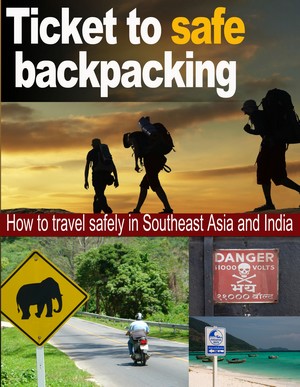


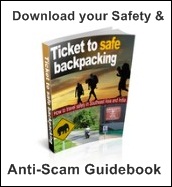

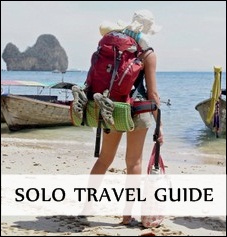
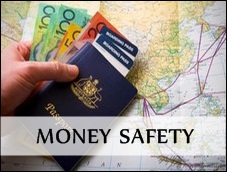
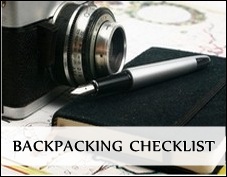
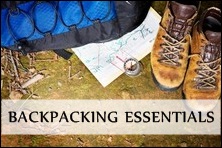
Comment this page:
Have your say about what you just read! Leave me a comment in the box below.